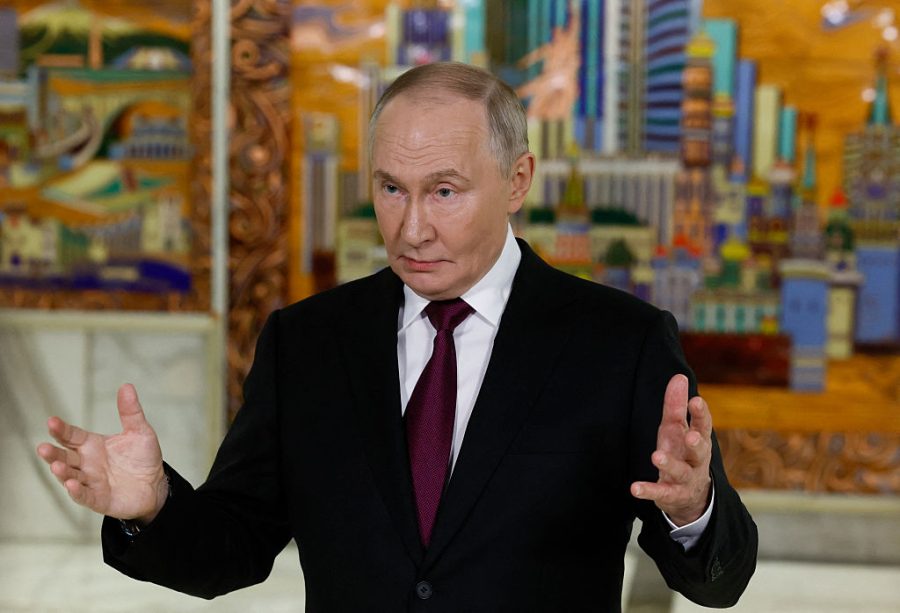Ten Reform party councillors in Derbyshire have resigned in protest at Nigel Farage’s ‘autocratic’ control of the rising party and its direction of travel. Farage has dismissed the revolt as the action of what he calls a ‘rogue branch’ of Reform, but there are stirrings of discontent in the grassroots of the fast-growing party that may signal more than minor teething troubles.
There are legitimate questions to be asked both about Reform’s structure and the way that Farage’s robust personality impacts upon it
During the Reform UK East Midlands conference, a former Tory MP for the Dudley seat – Mario Longhi – defected to Reform and was introduced by Nigel Farage as, ‘a loyal member of the Conservative Party for the last goodness knows how many years’. Some interpreted the spectacle as a fresh example of the Reform leadership’s preference for headhunting disaffected and opportunistic former Tories, rather than platforming loyal ordinary members.
Many members liked the radical former Reform party secretary Ben Habib, who quit the party late last year for the same reasons as the Derbyshire ten. Again, Farage brushed Habib’s departure aside – telling LBC that he had not been responsible for appointing him.
The Derbyshire revolt was first reported in the Guardian, and it is obviously in the interest of the Left to talk up any discontent in the insurgent party, which, with over 150,000 members and poised to take the lead in opinion polls, poses an existential threat to both Labour and the Tories. Yet criticism of the party leader has also come from those who might be thought to be natural Farage supporters – such as Elon Musk, who tweeted that Farage should be replaced as leader for not being up to the job.
As a Reform supporter myself, I hope the party continues to grow and prosper, but there are legitimate questions to be asked both about Reform’s structure and the way that Farage’s robust personality impacts upon it. To declare an interest, I was a UKIP candidate in the run-up to the 2016 referendum and admired Farage in action at close quarters on numerous occasions, though I was never a friend. Much later, I had lunch with him with a view to writing his biography: a project that never came to pass. For what it’s worth, here are my views of the man and his party.
For let us be frank: Nigel Farage is Reform, and without his dynamic energy, years of experience at the rough end of politics, and shrewd political nous, the party would never have attained the high profile it currently holds, with serious commentators predicting it could win 100 seats at the next election and even hold the balance of power.
Farage has a track record to prove his populist credentials: without his creation of UKIP and years of tireless campaigning, the Brexit referendum would never have been held, let alone fought and won. Without his creation of the Brexit party, Theresa May would have continued her betrayal of Brexit, and Boris Johnson would never have become Prime Minister, purged the Tory Remainers, forced Brexit through a reluctant Parliament, and won the 2019 election.
So, even before being elected to Westminster for the first time last year, Farage was arguably the most consequential British politician since Mrs Thatcher, and one who may yet still have his finest hour if Reform proves as successful as the first two parties he created. It is therefore important to examine the flaws as well as the aforementioned skills of the man who aspires to shatter the cosy Westminster consensus and make Britain great again.
It is a cliché that Farage is a Marmite politician – a figure who repels as many people as he attracts. The same, of course, could be said of his heroes Churchill and Trump, and the visceral hatred many Tories as well as Leftists hold for Reform’s leader is seen by his adoring fan base not as a handicap but as a badge of honour.
Not even Farage’s most devoted fans would claim he is a team player, and his autocratic tendencies have seen him fall out with too many of his ablest and most loyal lieutenants in the course of his long career.
All politicians are egotists, but Farage’s overweening self-regard can sometimes interfere with his judgement, and any criticism of his decisions tends to be met by Boris-style bluster. His chumminess with Donald Trump seems to have gone to his head and robbed him of his capacity for objective self-criticism.
In Farage’s case, it is his way or the highway, and all three of his party vehicles have been made in his own image. Reform is a top-down party – well, actually not a proper party at all but a company with Farage and a few friends as the shareholders. Key appointments are made by the leader without the slightest pretence of democracy or consultation with the party’s membership.
These faults may well be outweighed by the vital role that Reform and Farage himself have played and are still playing in remaking Britain’s failing politics. If Reform succeeds in its grand design, nitpicking complaints about Farage’s faults and foibles will be rightly forgotten – but there are already worrying signs that too much hubris could one day bring nemesis in its wake and burst Reform’s bubble before it has completed its vital mission.







Comments